-
 Bitcoin
Bitcoin $84,275.9738
-1.18% -
 Ethereum
Ethereum $1,573.8784
-1.51% -
 Tether USDt
Tether USDt $1.0000
0.01% -
 XRP
XRP $2.0508
-1.47% -
 BNB
BNB $590.3165
0.36% -
 Solana
Solana $136.8073
-1.57% -
 USDC
USDC $1.0000
0.02% -
 TRON
TRON $0.2456
0.95% -
 Dogecoin
Dogecoin $0.1541
-2.45% -
 Cardano
Cardano $0.6147
-1.97% -
 UNUS SED LEO
UNUS SED LEO $9.3554
-0.04% -
 Chainlink
Chainlink $12.9524
1.69% -
 Avalanche
Avalanche $19.3399
-1.65% -
 Toncoin
Toncoin $2.9731
0.19% -
 Stellar
Stellar $0.2417
-1.92% -
 Shiba Inu
Shiba Inu $0.0...01220
0.27% -
 Sui
Sui $2.0970
-2.03% -
 Hedera
Hedera $0.1613
-2.12% -
 Bitcoin Cash
Bitcoin Cash $334.7255
-0.82% -
 Polkadot
Polkadot $3.8075
1.75% -
 Hyperliquid
Hyperliquid $17.7039
-1.30% -
 Litecoin
Litecoin $75.8145
-0.21% -
 Dai
Dai $0.9999
-0.01% -
 Bitget Token
Bitget Token $4.4095
-1.49% -
 Ethena USDe
Ethena USDe $0.9992
0.00% -
 Pi
Pi $0.6261
-3.11% -
 Monero
Monero $214.8222
0.77% -
 Uniswap
Uniswap $5.1777
-0.97% -
 Pepe
Pepe $0.0...07374
2.27% -
 Aptos
Aptos $4.9197
2.06%
USDT contract transaction fee comparison: which platform is more cost-effective?
USDT perpetual contract trading fees vary widely across exchanges, using maker/taker models. Factors like volume, VIP status, and promotions influence costs; comparing platforms requires analyzing both fees and additional charges to find the most cost-effective option for your trading style.
Mar 20, 2025 at 03:00 pm
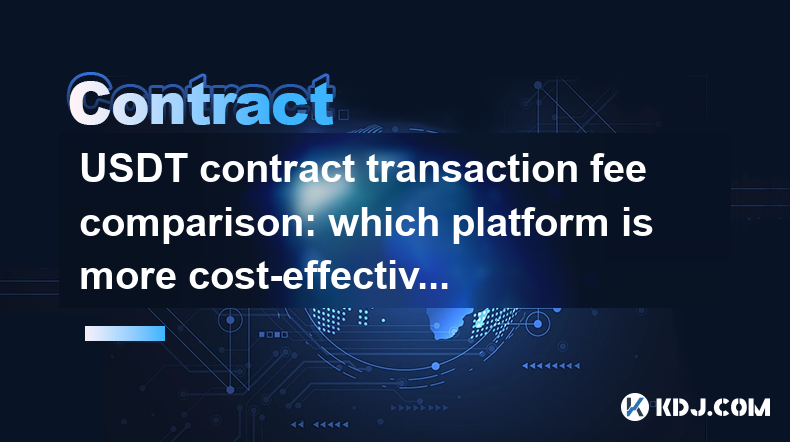
Key Points:
- USDT perpetual contract trading fees vary significantly across different cryptocurrency exchanges.
- Fees are typically structured as a maker/taker fee system, rewarding liquidity providers (makers) and charging liquidity consumers (takers).
- Factors influencing fees include trading volume, platform promotions, and VIP levels.
- Comparing fees requires analyzing both maker and taker fees, as well as any additional charges.
- Choosing a cost-effective platform depends on your trading style (maker or taker) and trading volume.
USDT Contract Transaction Fee Comparison: Which Platform is More Cost-Effective?
The cost of trading USDT perpetual contracts can significantly impact profitability. Different cryptocurrency exchanges offer varying fee structures, making a direct comparison crucial for cost-conscious traders. This article delves into the intricacies of these fees to help you choose a platform that aligns with your trading strategy and budget.
Understanding Maker and Taker Fees
Most exchanges employ a maker-taker fee system. Maker fees apply when you add liquidity to the order book (placing limit orders). Taker fees are charged when you remove liquidity (placing market orders). Generally, maker fees are lower or even negative (rebates) to incentivize providing liquidity. Taker fees are always positive, as they reflect the cost of immediately filling your order.
Fee Structures Across Different Platforms
Let's examine the fee structures of several popular exchanges. Remember, these fees are subject to change, so always check the official exchange website for the most up-to-date information. We'll use hypothetical examples for comparison.
- Exchange A: Might offer a maker fee of -0.02% and a taker fee of 0.05%. This incentivizes limit order usage.
- Exchange B: Could have a maker fee of 0.01% and a taker fee of 0.06%. This suggests a slightly higher cost for both market and limit orders compared to Exchange A.
- Exchange C: May present a tiered fee system, where fees decrease as your trading volume increases. For example, a high-volume trader might enjoy a maker fee of -0.03% and a taker fee of 0.04%.
- Exchange D: This exchange might offer a flat fee structure regardless of volume. This is less common but could still be competitive depending on the rates.
Factors Affecting Fees Beyond the Base Rate
Several factors can influence the final fee you pay beyond the base maker/taker rates.
- Trading Volume: Many exchanges offer tiered fee structures, reducing fees for higher trading volumes. This rewards active traders.
- VIP Programs: Some platforms offer VIP programs or loyalty programs that provide discounted fees based on trading volume or account size.
- Promotional Offers: Exchanges often run promotions that temporarily reduce trading fees. These can be time-sensitive opportunities to save money.
- Referral Programs: Refer a friend and you might receive discounted trading fees, or even a rebate.
- Hidden Fees: Be wary of hidden fees. Always check the terms and conditions to avoid any surprises. Some exchanges may charge withdrawal fees, for example.
Step-by-Step Fee Comparison:
How to effectively compare fees across different platforms:
- Find Fee Schedules: Locate the fee schedule on each exchange's website. This information is usually found in the "Fees," "Trading Fees," or "Help" sections.
- Compare Maker and Taker Fees: Note both the maker and taker fees for each platform. Consider your typical trading style – are you primarily a maker or a taker?
- Check for Tiered Fees: See if the fees change based on your trading volume. Project your expected volume to determine which tier you'll fall into.
- Factor in Promotions: Consider any ongoing promotions or discounts.
- Analyze Total Costs: Calculate the total cost of trading a specific amount on each platform, factoring in both maker and taker fees and any other potential charges.
Choosing the Most Cost-Effective Platform
Selecting the most cost-effective platform hinges on your individual trading style and volume. A high-frequency trader with large volumes might benefit from a platform with tiered fees, while a less active trader might prefer a platform with consistently low fees regardless of volume. Remember to account for all fees, not just the maker/taker rates.
Frequently Asked Questions:
Q: Are USDT contract trading fees the same across all exchanges?
A: No, USDT contract trading fees vary significantly across different cryptocurrency exchanges. Each platform sets its own fee structure, often with different maker and taker fees, and sometimes tiered systems based on trading volume.
Q: What are maker and taker fees?
A: Maker fees apply when you add liquidity to the order book (placing limit orders), often incentivized with lower or even negative fees. Taker fees are charged when you remove liquidity (placing market orders), always resulting in a positive cost.
Q: How do tiered fee structures work?
A: Tiered fee structures reward high-volume traders with lower fees. The fees decrease as your trading volume increases, moving you up through different tiers with progressively lower fees.
Q: Do all exchanges use a maker/taker fee system?
A: While most exchanges use the maker/taker model, some might have alternative fee structures. Always check the specific fee schedule of the exchange you're considering.
Q: Are there any hidden fees I should be aware of?
A: Yes, be sure to check for withdrawal fees, inactivity fees, or other potential charges beyond the advertised maker/taker fees. Carefully review the terms and conditions of each platform.
Q: How often do exchange fees change?
A: Exchange fees can change at any time, usually with prior notice, but sometimes without explicit notification. It's best to check the official website regularly for the most current information.
Disclaimer:info@kdj.com
The information provided is not trading advice. kdj.com does not assume any responsibility for any investments made based on the information provided in this article. Cryptocurrencies are highly volatile and it is highly recommended that you invest with caution after thorough research!
If you believe that the content used on this website infringes your copyright, please contact us immediately (info@kdj.com) and we will delete it promptly.
- The best sources for Coin Master free spins are the daily links that Moon Active posts on the title's official social media handles.
- 2025-04-20 22:05:13
- It Has Been an Exciting Week for BLACKPINK Fans in the UK! From April 17 to 23
- 2025-04-20 22:05:13
- Actor Park Bo Gum Surprises Many with His Smart Investment Skills
- 2025-04-20 22:00:13
- Recent Fan-Funded Ad Featuring Kim Soo-hyun at Seoul's Hongdae Station Has Sparked Backlash
- 2025-04-20 22:00:13
- Cosmos (ATOM) Begins to Show Signs of a Bullish Reversal
- 2025-04-20 21:55:13
- Vietnam Partners with Bybit to Test a Regulated Cryptocurrency Trading Platform
- 2025-04-20 21:55:13
Related knowledge

How does Tail Protection reduce the loss of liquidation?
Apr 11,2025 at 01:50am
Introduction to Tail Protection in CryptocurrencyTail Protection is a mechanism designed to mitigate the risks associated with liquidation in cryptocurrency trading. Liquidation occurs when a trader's position is forcibly closed by the exchange due to insufficient margin to cover potential losses. This often happens in leveraged trading, where traders b...
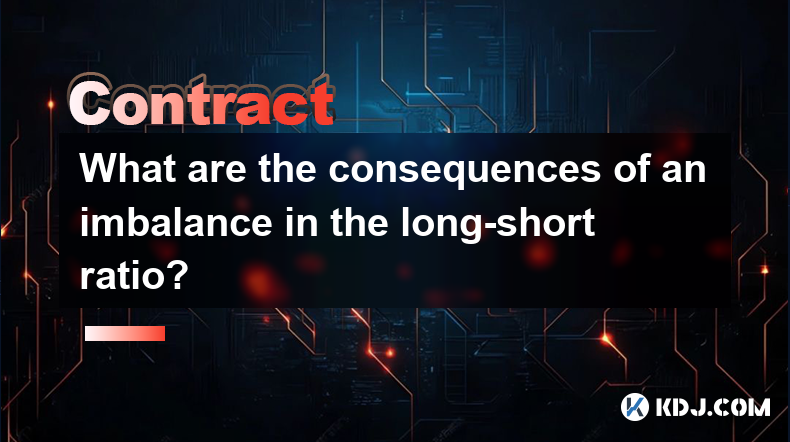
What are the consequences of an imbalance in the long-short ratio?
Apr 13,2025 at 02:50pm
The long-short ratio is a critical metric in the cryptocurrency trading world, reflecting the balance between bullish and bearish sentiments among traders. An imbalance in this ratio can have significant consequences on the market dynamics, affecting everything from price volatility to trading strategies. Understanding these consequences is essential fo...
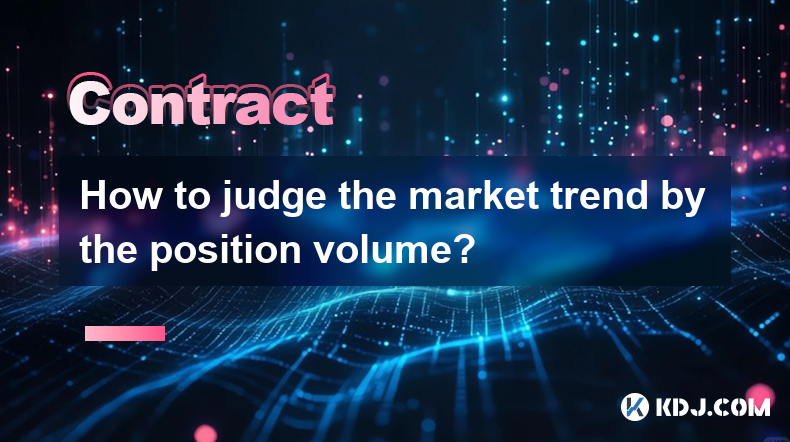
How to judge the market trend by the position volume?
Apr 11,2025 at 02:29pm
Understanding how to judge the market trend by position volume is crucial for any cryptocurrency trader. Position volume, which refers to the total number of open positions in a particular cryptocurrency, can provide valuable insights into market sentiment and potential price movements. By analyzing this data, traders can make more informed decisions ab...

Why does a perpetual contract have no expiration date?
Apr 09,2025 at 08:43pm
Perpetual contracts, also known as perpetual futures or perpetual swaps, are a type of derivative product that has gained significant popularity in the cryptocurrency market. Unlike traditional futures contracts, which have a fixed expiration date, perpetual contracts do not expire. This unique feature raises the question: why does a perpetual contract ...
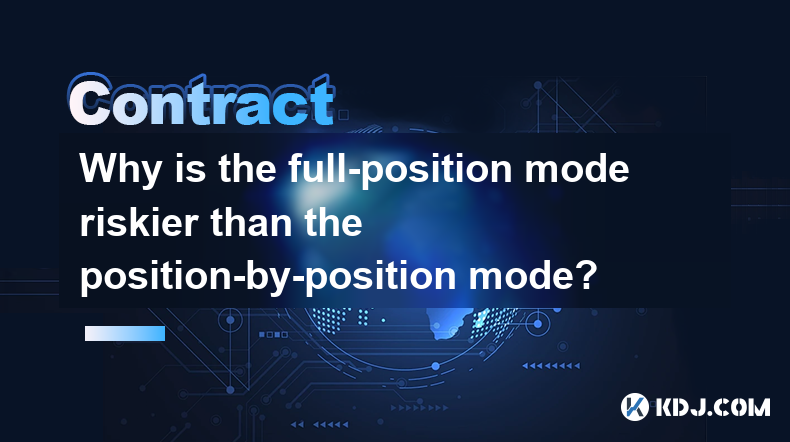
Why is the full-position mode riskier than the position-by-position mode?
Apr 13,2025 at 03:42pm
Why is the Full-Position Mode Riskier Than the Position-by-Position Mode? In the world of cryptocurrency trading, the choice between full-position mode and position-by-position mode can significantly impact the risk profile of a trader's portfolio. Understanding the differences between these two modes is crucial for making informed trading decisions. Th...
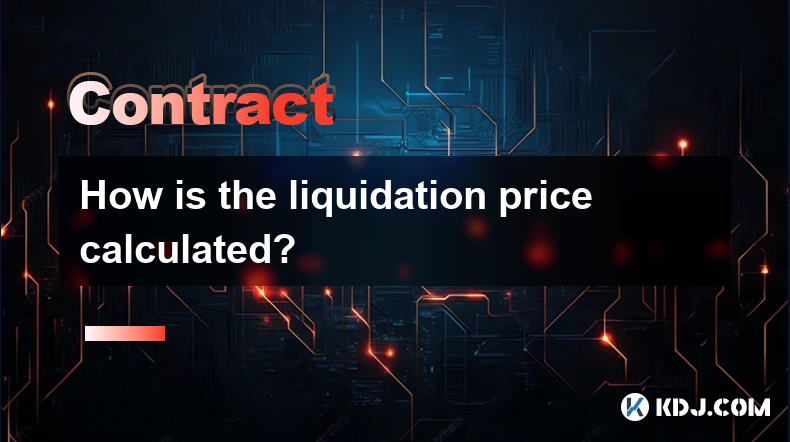
How is the liquidation price calculated?
Apr 12,2025 at 01:35am
Introduction to Liquidation PriceLiquidation price is a critical concept in the world of cryptocurrency trading, particularly when dealing with leveraged positions. Understanding how this price is calculated is essential for traders to manage their risk effectively. The liquidation price is the point at which a trader's position is forcibly closed by th...

How does Tail Protection reduce the loss of liquidation?
Apr 11,2025 at 01:50am
Introduction to Tail Protection in CryptocurrencyTail Protection is a mechanism designed to mitigate the risks associated with liquidation in cryptocurrency trading. Liquidation occurs when a trader's position is forcibly closed by the exchange due to insufficient margin to cover potential losses. This often happens in leveraged trading, where traders b...

What are the consequences of an imbalance in the long-short ratio?
Apr 13,2025 at 02:50pm
The long-short ratio is a critical metric in the cryptocurrency trading world, reflecting the balance between bullish and bearish sentiments among traders. An imbalance in this ratio can have significant consequences on the market dynamics, affecting everything from price volatility to trading strategies. Understanding these consequences is essential fo...

How to judge the market trend by the position volume?
Apr 11,2025 at 02:29pm
Understanding how to judge the market trend by position volume is crucial for any cryptocurrency trader. Position volume, which refers to the total number of open positions in a particular cryptocurrency, can provide valuable insights into market sentiment and potential price movements. By analyzing this data, traders can make more informed decisions ab...

Why does a perpetual contract have no expiration date?
Apr 09,2025 at 08:43pm
Perpetual contracts, also known as perpetual futures or perpetual swaps, are a type of derivative product that has gained significant popularity in the cryptocurrency market. Unlike traditional futures contracts, which have a fixed expiration date, perpetual contracts do not expire. This unique feature raises the question: why does a perpetual contract ...

Why is the full-position mode riskier than the position-by-position mode?
Apr 13,2025 at 03:42pm
Why is the Full-Position Mode Riskier Than the Position-by-Position Mode? In the world of cryptocurrency trading, the choice between full-position mode and position-by-position mode can significantly impact the risk profile of a trader's portfolio. Understanding the differences between these two modes is crucial for making informed trading decisions. Th...

How is the liquidation price calculated?
Apr 12,2025 at 01:35am
Introduction to Liquidation PriceLiquidation price is a critical concept in the world of cryptocurrency trading, particularly when dealing with leveraged positions. Understanding how this price is calculated is essential for traders to manage their risk effectively. The liquidation price is the point at which a trader's position is forcibly closed by th...
See all articles























































































